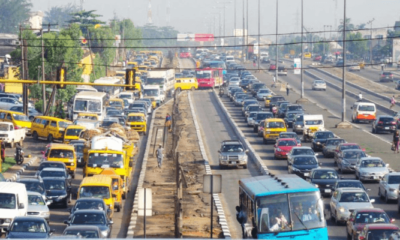News
Economic Crisis Worsen As NGO Advises Nigerians To Get Ready For More Hardship

A civil society organization operating under the auspices of the International Human Rights Commission has said that the National Bureau of Statistics’ estimate that 133 million Nigerians live in poverty would be a recipe for a new level of hunger never before seen in Nigeria.
The non-profit organization emphasized the need for government to empower people in rural regions to combat Nigeria’s rising poverty while describing the report as a warning of an impending economic crisis.
During the distribution of food and cash to over 150 low-income individuals and people with disabilities, Dr. Duru Hezekiah, the IHRC‘s Head of Diplomatic Missions in Nigeria and the organization’s At-Large Ambassador, made this statement.
The gifts which came ahead of the Christmas celebration were to cushion the effects of the growing inflation.
The NBS estimated that 133 million individuals in Nigeria, or 63% of the population, were multidimensionally poor.
According to the research, poor access to education, housing, health care, work, and security is to blame for the country’s growing poverty.
The inflation rate in Nigeria has reached its highest level since September 2005, when it was 24.32 percent, according to another report released by NBS on Thursday.
The current inflation stands at 21.47 per cent.
Hezekiah, however, reacted to the NBS findings by stating that if the poverty rate was not quickly addressed, it would be disastrous.
According to him, “We are really in an economic crisis. And if it’s not checked, I tell you, the time is coming when will go into a fiasco, a time is coming when in fact, Nigeria will be declared a ‘hunger country’ and that is why we are still appealing to the government.
READ ALSO: How my wife thought the worst when I made my first N1m – Ali Baba
“In International Human Rights Commission, we don’t believe in protests. We don’t believe in riots.
“We believe in dialogue and negotiation. And so we keep appealing to the government, advising them on way forward to find a lasting solution. I know we might not be able to eradicate poverty 100 per cent but I tell you the growth of a nation begins with the growth of the people. If the people are happy, if the people are well taken care of, there will be growth. Look at the developed countries today.
“The rate of poverty is low compared to us here. So if governments want to be true to themselves, they should help us by empowering these people so that they can be able to cope with the level of inflation.”
Speaking about the selection of recipients for the gifts, the IHRC director noted that many Nigerians were suffering from social vulnerability and poverty, and that for the majority of them, the holiday season did not bring anything with which to celebrate.
He said, “It is in awareness of this that we must commend the brain and drive behind this annual end-of-year giveaway programme for the vulnerable.
“Further still, in recognition of its targeting specifically of women from selected rural areas of the Federal Capital Territory to comprise the beneficiaries of this year’s edition, I wish to reiterate that the choice could be no more appropriate, for women, being natural home-makers, have the majority of those rural households depending on them for the possibility of love, joy and laughter this season.
“For us as humanitarians to feast freely and draw the year to close with joy in our hearts, we must ensure that there is some justice in our world and society as manifested through equitable, or at least charitable.”
Chris Agbo, Secretary-General of the Joint National Association of Persons with Disabilities, FCT, spoke on behalf of beneficiaries when he stated that the majority of the 133 million Nigerians living in poverty are PWDs who have limited options.
He praised the IHRC for the action and added, “Most of us suffer a lot of discrimination. The offices where we will even move to earn living are not accessible to them. And a whole lot of other opportunities that we don’t really have and thus, it is a very serious thing that we will begin to see how to include persons with disabilities in whatever we do, and attempt to try to curb poverty without including persons with disabilities is only a joke.”



























